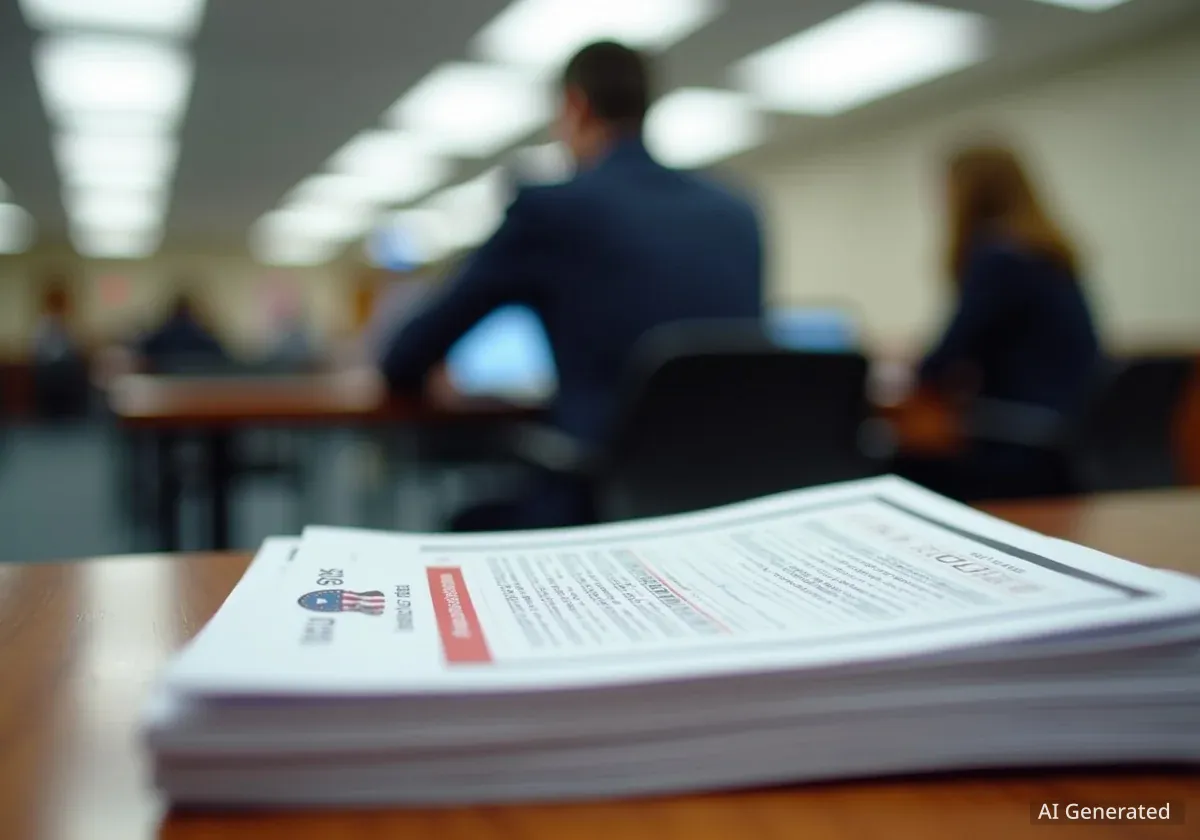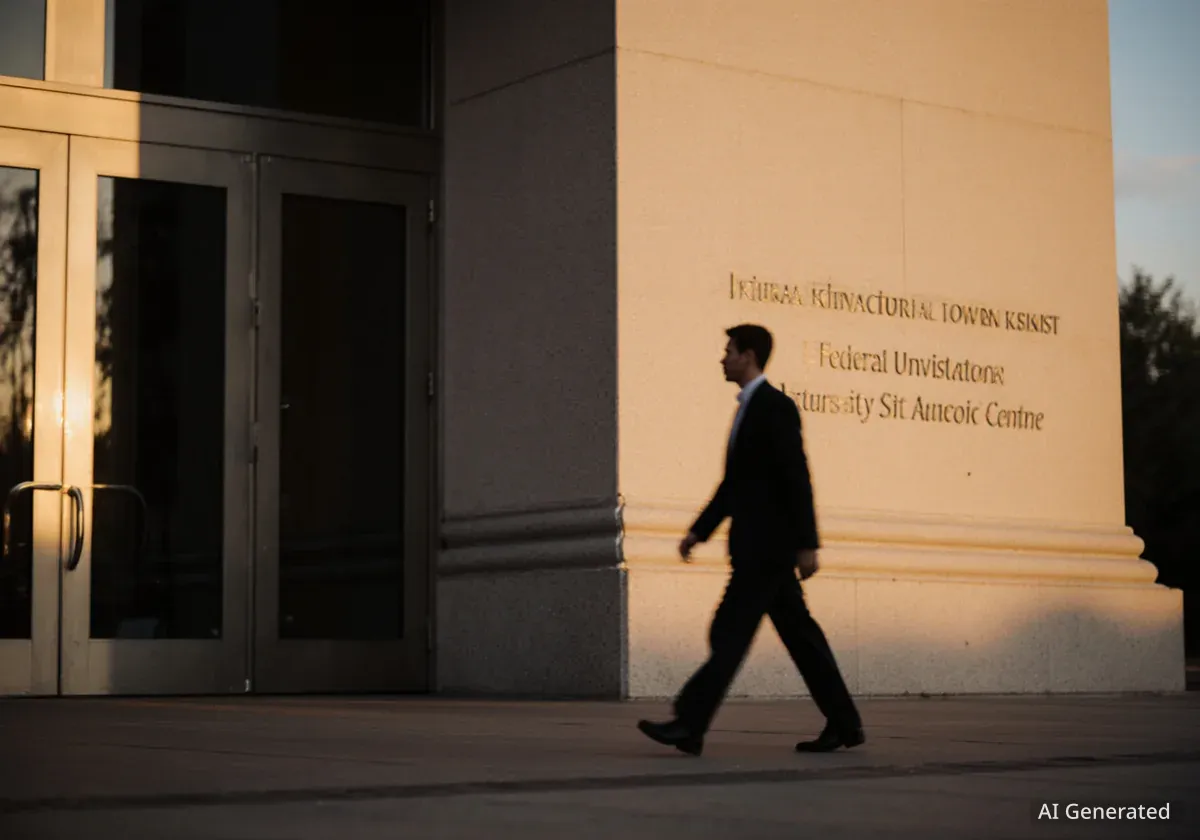Aspiring American citizens now face a more rigorous civics test as part of the naturalization process. U.S. Citizenship and Immigration Services (USCIS) has implemented a revised examination, effective for all individuals applying on or after October 20, 2025, which features more questions and a greater emphasis on American history and government principles.
The updated test is designed to provide a more comprehensive assessment of an applicant's knowledge. However, immigration support professionals have raised concerns that the changes could present significant hurdles, particularly for those who are not native English speakers.
Key Takeaways
- The new U.S. citizenship civics test began for applications filed on or after October 20, 2025.
- Applicants must now answer 20 questions, double the previous number, and must answer 12 correctly to pass.
- The total pool of potential questions has increased to 128, with a stronger focus on American history and civics.
- Experts suggest the revised format is more challenging, especially for non-native English speakers due to more complex questions.
Details of the Revised Civics Examination
The path to U.S. citizenship has long included a civics test, a key step in demonstrating an understanding of the nation's history and system of government. The 2025 revision represents one of the most significant updates to the exam in recent years. Previously, applicants were asked up to 10 questions and needed to answer six correctly.
Under the new rules, an immigration officer will ask the applicant 20 questions selected at random from a larger list of 128 potential questions. To pass, the applicant must provide a correct oral answer for at least 12 of them. This change effectively raises the passing threshold and requires a broader base of knowledge.
By the Numbers: The New Test
- Total Questions Asked: 20
- Correct Answers to Pass: 12 (60%)
- Total Question Pool: 128
The changes come amid a broader context of increased scrutiny on immigration and citizenship applications. The federal government has indicated that the updates are intended to ensure a more thorough evaluation of an applicant's commitment to and understanding of American civic principles.
A Stronger Focus on History and Nuance
A notable shift in the new test is its deeper dive into American history and the principles behind the U.S. Constitution. While previous versions of the test covered foundational topics, the 2025 version includes questions that may require more detailed and nuanced answers.
Examples of New Question Areas
The expanded question bank covers a wider range of historical events and figures. For instance, questions about the Federalist Papers, the role of specific founders like James Madison, and key military conflicts require more than just rote memorization. Applicants may be asked to explain the purpose of the Federalist Papers—that they supported the passage of the U.S. Constitution—rather than simply identifying them.
Other new questions touch on specific amendments, such as the 14th Amendment's definition of citizenship, and pivotal moments in American history like the reasons for U.S. entry into the Persian Gulf War. The test also includes questions on American innovation, asking applicants to name examples like the lightbulb.
The Naturalization Interview
The civics test is just one part of the naturalization interview. Applicants must also demonstrate an ability to read, write, and speak basic English. The civics portion is administered orally, meaning applicants must understand the question as spoken by an officer and provide a verbal response without the aid of multiple-choice options.
Concerns Voiced by Immigration Advocates
The increased difficulty of the test has prompted concern among immigration instructors and advocates. They worry that the changes will disproportionately affect applicants with lower levels of English proficiency or those with limited formal education.
“It’s definitely more challenging, especially for people [for whom] English is not their first language,” said Jonathan Wong, an instructor with the online preparation firm USCitizenshipTest.
Wong and others in the field note that some revised questions require longer, more complex answers than before. This shift from simple, fact-based responses to more explanatory answers could create a significant barrier for many who are otherwise qualified for citizenship.
The preparation process for aspiring citizens will likely need to become more intensive. Tutors and community organizations that assist with citizenship applications are already adapting their materials and teaching methods to cover the 128-question pool and the more detailed historical content.
Could You Pass the New Test?
To understand the level of knowledge now required, it's helpful to consider some of the questions applicants might face. While the official test is oral, here are some examples based on the USCIS study materials:
- Who wrote the Declaration of Independence? (Answer: Thomas Jefferson)
- The Federalist Papers supported the passage of the U.S. Constitution. Name one of the writers. (Answer: James Madison, Alexander Hamilton, or John Jay)
- Name one power of the U.S. Congress. (Answer: Writes laws, declares war, or makes the federal budget)
- Why did the United States enter the Persian Gulf War? (Answer: To force the Iraqi military from Kuwait)
- When did all women get the right to vote? (Answer: 1920, with the adoption of the 19th Amendment)
These questions demonstrate the test's blend of foundational knowledge and specific historical facts. For the thousands of immigrants who apply for U.S. citizenship each year, mastering this material is now a more demanding but essential step on their journey to becoming Americans.





